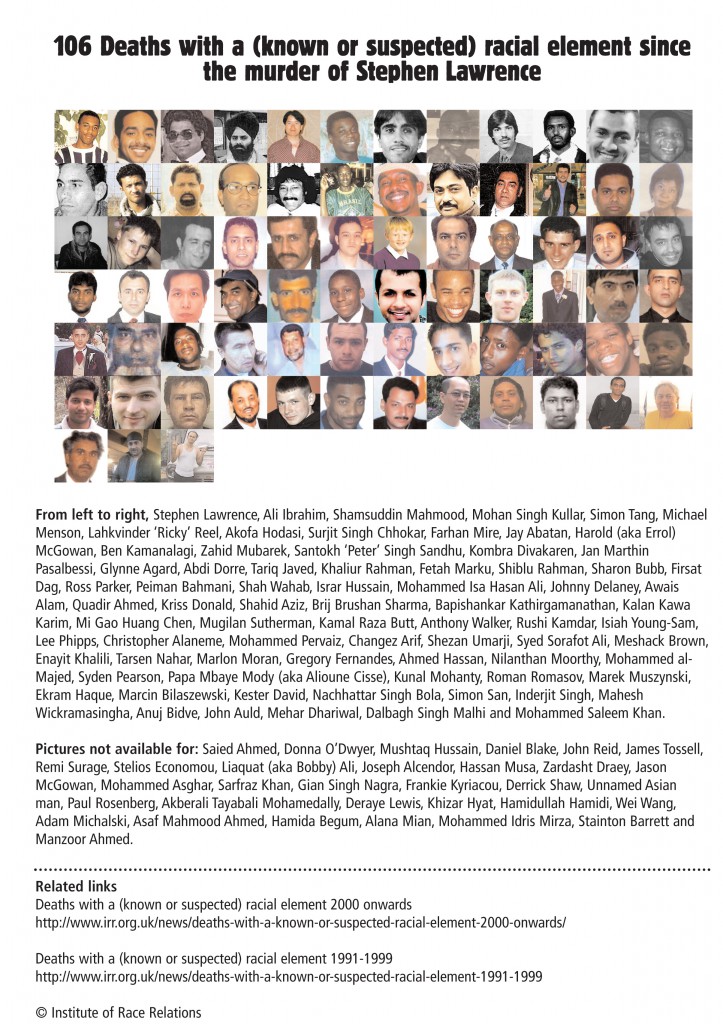News
Racial violence since the death of Stephen Lawrence
(June 18, 2013)Racial violence since the death of Stephen Lawrence
April 18, 2013 — Press release
As the twentieth anniversary of the murder of Stephen Lawrence approaches, the IRR examines racial violence since his death in 1993.
In the twenty years since the death of Stephen Lawrence, we can report that 106 people have lost their lives in (known or suspected) racist attacks – five per year on average, that black people are twenty-eight times more likely than white to be stopped and searched by the police (using Section 60 powers), that in 2009/10 black people were over three times more likely than white to be arrested, that black and those of mixed ethnicity are over twice as likely as whites to be unemployed, that three quarters of 7-year-old Pakistani and Bangladeshi children are living in poverty compared to one in four whites, and that those classifying themselves as ‘Other Black’ are six times more likely than average to be admitted as mental health inpatients.
Yet as a society we are in denial about racism. Because the 1999 Macpherson report (into Lawrence’s death and subsequent policing), for the first time, acknowledged institutional racism and the Race Relations Amendment Act followed in its wake, politicians regard the issue as over, declare our society ‘post-racial’. But the kind of mechanistic, box-ticking equality measures being implemented leave intact the laws which discriminate, the power of the media in fomenting hatred and – the levels of racial violence.
Worse, multiculturalism itself is now held responsible for racial tension; think-tanks redefine ‘the problem’ in terms of individual attitudes, identity and willingness to belong; and local anti-racist structures are being decimated. Said IRR researcher Dr Jon Burnett, ‘The twenty years since the unprovoked murder of Stephen Lawrence reveals not the end of racism, but the fact that it is deeply entrenched and infinitely adaptable. What we fear is that as austerity measures begin to bite and politicians compete over restricting immigration and benefits, the fall-out will inevitably be an increase in racism.’
Ongoing research by the Institute of Race Relations shows that racial violence does not impact on all communities equally. As racism is shaped by factors such as military intervention abroad and the resort to nativism in social policy as austerity measures bite, its nature changes, as does its manifestation in towns and cities undergoing swift demographic change. At a time of growing anti-foreigner rhetoric, it is newly arrived migrants, asylum seekers and those identified as visibly or culturally different, who are more likely to be the victims of racial attack. And, according to the Crime Survey for England and Wales, such attacks are running at the rate of 130,000 per year.
